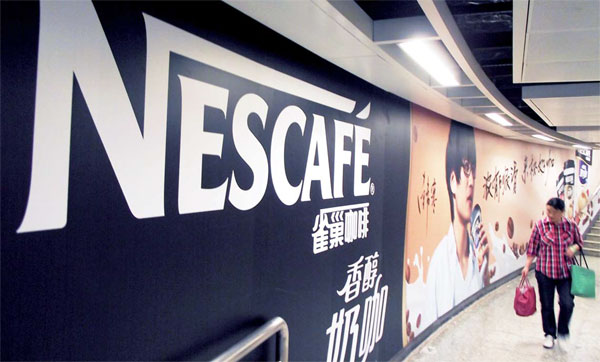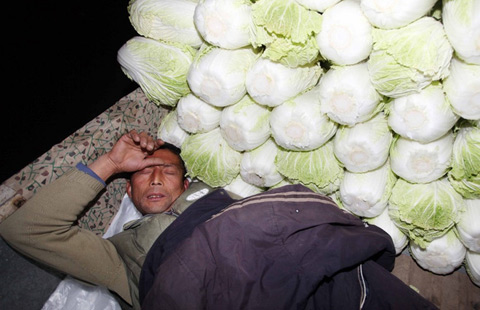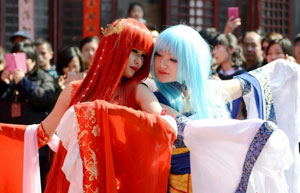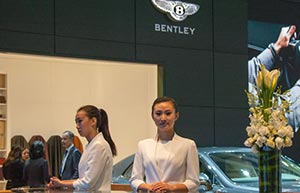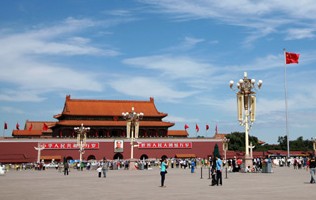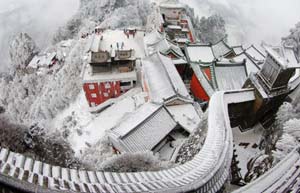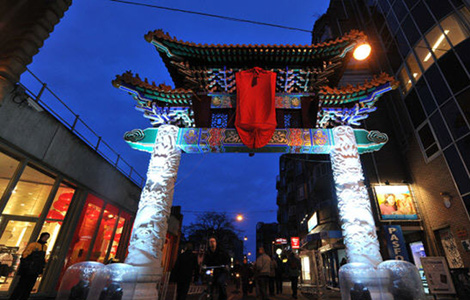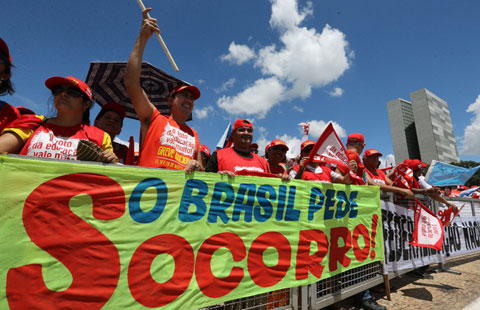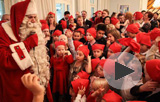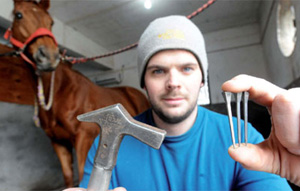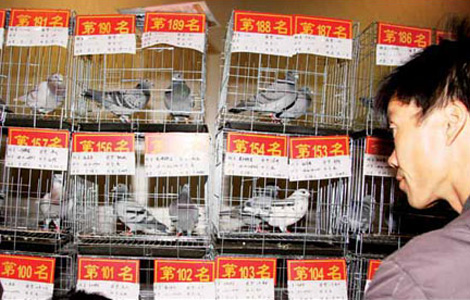Forces tug on shoppers' purse strings
By Wang Zhuoqiong ( China Daily Europe ) Updated: 2014-02-28 08:44:15
|
A Nestle coffee ad in Nanjng, Jiangsu province. The world's largest food maker said growth in its Asia-Oceania-Africa region cooled to 7.4 percent in 2013. Provided to China Daily |
The government austerity drive and a slowing economy have dealt blows to sales of consumer goods, particularly luxury brands and high-end products
China's slowing economy, as well as the government anti-corruption campaign, have weakened the growth of many international companies. Experts predict dimmer prospects for consumer spending this year.
Zhao Ping, deputy director of the department of consumer economics at the Chinese Academy of International Trade and Economic Cooperation, says retail sales growth stood at 13.1 percent in 2013, down from the 14.3 percent growth logged in 2012 and 17.1 percent in 2011.
Jason Yu, general manager of Kantar Worldpanel, a global researcher of shopping habits, says the sales of fast-moving consumer goods rose by 7.4 percent in 2013.
Although the figures seemed positive compared with the sluggish markets of Europe and the United States, they reflect an obvious slowdown from the double-digit growth of previous years, he says.
According to China Media and Market Trends of 2014, research conducted by CTR Market Research, sales growth for fast-moving consumer goods sank to 7 percent from 11 percent in the fourth quarter of last year.
"Such weakened growth has had a major impact on many consumer businesses," Yu says.
The austerity campaign designed to curb consumption of luxury products using public funds greatly affected the sales of high-end products and luxury brands, Yu says. He cited foreign alcohol, wine and tobacco as examples.
"The macroeconomy has more or less curbed the desire to purchase," he says. "Consumers are reluctant to spend."
He observed that the buying of household items from state-owned enterprises or government institutions for employee welfare has also dropped significantly.
Food marketer Nestle and liquor seller Pernod Ricard SA attributed their weak results in part to struggles in emerging economies.
Many European companies had relied on sales in markets such as China, Brazil and Mexico to maintain revenue momentum while developed markets remained sluggish.
"The macro-environment in 2013 was one of soft growth, minimal in the developed world and below recent levels in the emerging markets," Nestle Chief Executive Paul Bulcke says. "2014 will likely be the same."
Nestle, based in Vevey, Switzerland, the world's largest food maker by revenue, said growth in its Asia-Oceania- Africa region, which contains the Chinese market, cooled to 7.4 percent in 2013 from 10.3 percent a year earlier.
Nestle, maker of Kit Kat chocolate bars and Nescafe instant coffee, said its full-year profit fell 2.2 percent to a worse-than-expected $11.16 billion. The company cited Hsu Fu Chi, a confectionery maker in China, as a weak point, because of the slowing down of the country's sweets market.
Spirits manufacturer Pernod Ricard has seen its sales slide over the past year after China's anti-corruption campaign curbed lavish banquets and the practice of gift-giving among officials and executives.
|
|
|
|
|
|
|
|
European Weekly
 We will not give up search, Li vows
We will not give up search, Li vows
International hunt for missing airliner continues after fruitless six-day search


